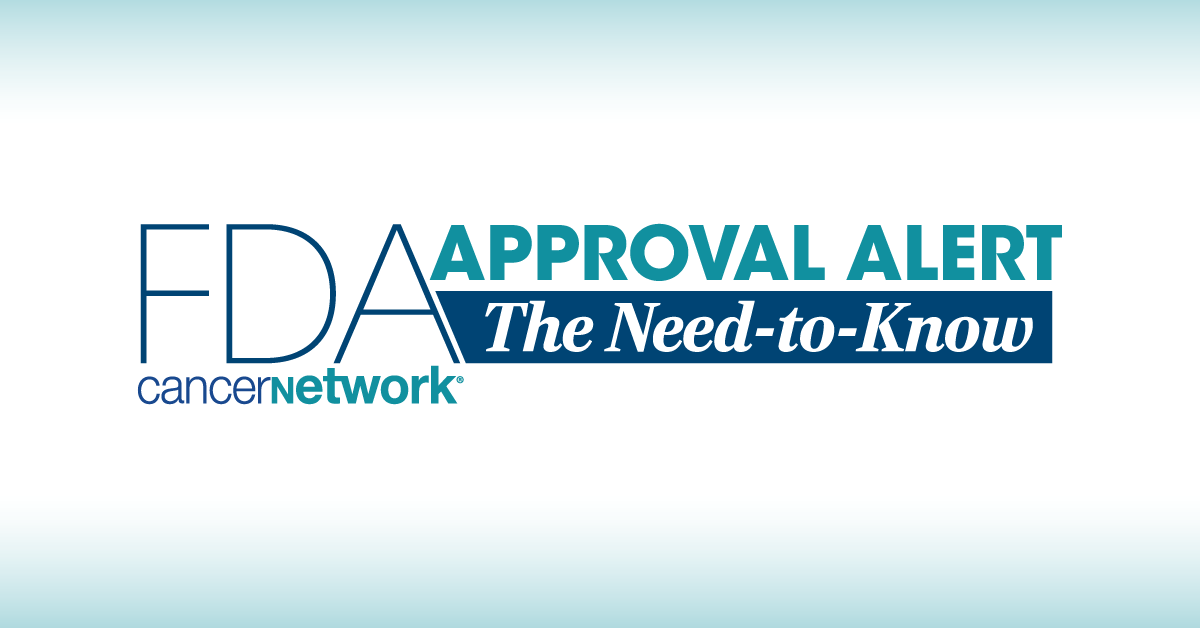FDA Approves Perioperative Pembrolizumab Plus Radiation in HNSCC
Data from the phase 3 KEYNOTE-689 trial support the approval of the pembrolizumab-based regimen in this locally advanced HNSCC population.
Data from the phase 3 KEYNOTE-689 trial support the approval of the pembrolizumab-based regimen in this locally advanced HNSCC population.

The FDA has approved neoadjuvant pembrolizumab (Keytruda) monotherapy followed by adjuvant pembrolizumab plus radiotherapy with or without cisplatin after surgery and then pembrolizumab monotherapy among patients with PD-L1–positive locally advanced head and neck squamous cell carcinoma (HNSCC), according to a press release from the agency.1
Supporting data for the approval came from the phase 3 KEYNOTE-689 trial (NCT03765918) trial evaluating the pembrolizumab-based regimen vs adjuvant radiotherapy with or without cisplatin alone among 714 patients with resectable locally advanced HNSCC. Topline data showed that among 682 patients with PD-L1–positive disease defined by a PD-L1 CPS of 1 or higher, the median event-free survival (EFS) was 59.7 months (95% CI, 37.9-not reached [NR]) in the pembrolizumab arm vs 29.6 months (95% CI, 19.5-41.9) in the comparator arm (HR, 0.70; 95% CI, 0.55-0.89; P = .00140).
With 76% of pre-specified deaths accounted for in the PD-L1–positive population, pembrolizumab-based treatment did not trend towards detrimental outcomes.
Prescribing information for pembrolizumab includes warnings for potential toxicities including immune-mediated adverse reactions, infusion-related reactions, and embryo-fetal toxicity. Adverse effects in the KEYNOTE-689 trial were comparable with prior reports of the agent.
The agency approved pembrolizumab at a dose of 200 mg every 3 weeks or 400 mg every 6 weeks before chemotherapy when given on the same day.
"The current standard of care for a majority of these patients includes surgery followed by radiation with or without chemotherapy. The chance of curing patients with the current standard of care is just under 50%. There lies the problem: a large number of patients unfortunately develop recurrence of their cancer after the standard-of-care treatment," study investigator Douglas R. Adkins, MD, associate professor of Internal Medicine, Division of Oncology, Section of Medical Oncology at Washington University School of Medicine in St. Louis, Missouri, said in an interview with CancerNetwork ahead of the approval regarding the KEYNOTE-689 data. "These data are compelling data that I anticipate will alter the standard-of-care treatment for patients with locally advanced resectable [HNSCC]."
The FDA granted priority review to the pembrolizumab-based regimen in locally advanced HNSCC in February 2025.2
References
- FDA approves neoadjuvant and adjuvant pembrolizumab for resectable locally advanced head and neck squamous cell carcinoma. News release. FDA. June 12, 2025. Accessed June 12, 2025. https://tinyurl.com/yt9p66xz
- FDA grants priority review to Merck’s application for KEYTRUDA® (pembrolizumab) plus standard of care as perioperative treatment for resectable locally advanced head and neck squamous cell carcinoma. News release. Merck. February 25, 2025. Accessed June 12, 2025. https://tinyurl.com/yeypvde6